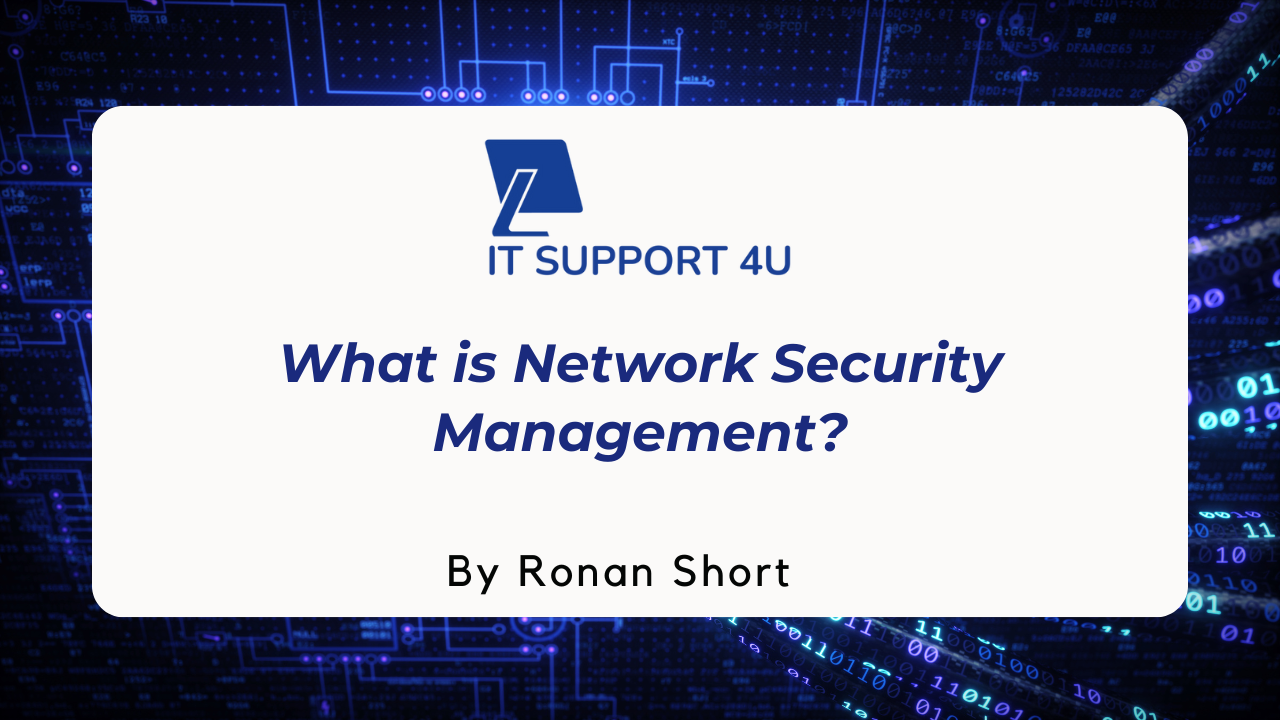Choosing the best firewall for your home network can seem daunting. We've discovered that there are a wide array of firewalls available on the market, each designed for specific security needs.
Our blog will guide you through an overview of different types of firewalls, help you understand their strengths and weaknesses, and show you how to choose the right one based on key factors such as cost, ease of management, and scalability.
So, ready to secure your digital world? Let's dive in!
Key Takeaways
- Packet filtering firewalls provide basic protection by examining data packets and applying predetermined rules, but they may leave your system vulnerable to sophisticated attacks.
- Circuit-level gateway firewalls offer simplicity and efficiency by monitoring individual network connections at a basic level, making them ideal for preventing unauthorised access without sacrificing performance.
- Application-level gateway firewalls provide enhanced security by examining the contents of each packet, making them highly effective at protecting against advanced attacks on web applications.
- Stateful inspection firewalls go beyond packet filtering by examining the context of network connections in real-time and blocking suspicious activities.
- Next-generation firewalls integrate multiple security features like deep-packet inspection and intrusion prevention systems, providing optimal firewall protection for home networks.
Overview of Firewall Types
There are several types of firewalls, including packet filtering, circuit-level gateway, application-level gateway, stateful inspection, and next-generation firewalls.
Packet filtering firewall
Packet filtering firewalls operate directly on your network's front line, observing incoming and outgoing traffic. They work by examining data packets—small chunks of data bundled for transmission over a network.
Each packet carries important information, like its source and destination IP addresses. The firewall uses this information to decide whether to permit or deny the packets based on predetermined rules that you can modify according to your specific security needs.
This method provides a basic level of security, offering protection from unrequested external communications while allowing all outbound communication. However, packet filtering firewalls do not check the content within these packets, which may contain malicious code, leaving your system somewhat vulnerable to sophisticated attacks such as SQL injections or cross-site scripting (XSS).
It’s crucial, therefore, that when using this type of firewall, it's complemented with other cybersecurity measures for comprehensive protection.
Circuit-level gateway
Circuit-level gateways are one of the main types of firewalls that can protect your network from cyber threats. These firewalls work by monitoring and controlling individual network connections at the circuit level.
They examine basic information about each connection, such as source and destination IP addresses, without inspecting the actual contents of the data packets. Circuit-level gateways are known for their simplicity and efficiency because they do not analyse every packet like other firewall types.
By using a circuit-level gateway firewall, you can add an extra layer of security to your home network without sacrificing performance. These firewalls are particularly useful for preventing unauthorised access to your devices and applications while allowing legitimate traffic to pass through smoothly.
Their ability to filter out malicious connections based on IP addresses makes them effective at safeguarding against certain types of attacks.
Application-level gateway
Application-level gateways are a type of firewall that provides enhanced security for enterprise resources by focusing on web application threats. These firewalls go beyond just filtering network traffic; they also examine the contents of each packet to ensure that only valid and safe data is allowed through.
This level of scrutiny makes application-level gateways highly effective at protecting against advanced attacks. Additionally, these firewalls can be implemented as hardware or software solutions, depending on the specific needs of the homeowners.
By using an application-level gateway as part of your network defence strategy, you can have peace of mind knowing that your home's digital perimeter is well protected against cyber threats.
Stateful inspection firewall
Stateful inspection firewalls are a popular choice for protecting networks. They go beyond packet filtering by examining the context of each network connection. This means they can identify and prevent unauthorised access, as well as detect and block suspicious activities in real-time.
Stateful inspection firewalls provide robust security without sacrificing performance, making them ideal for homeowners looking to safeguard their networks from cyber threats.
Next-generation firewall
Next-generation firewalls are the latest technology in network security. These advanced firewalls go beyond just packet filtering and provide enhanced protection against sophisticated threats.
They offer features like deep-packet inspection, an intrusion prevention system, application awareness, and even threat intelligence integration. With the ability to analyse network traffic at an application level, next-generation firewalls can identify and block malicious activities more effectively.
They are highly recommended for homeowners who want optimal firewall protection for their home networks.
Factors to Consider in Choosing the Best Firewall
When selecting the best firewall, it is essential to consider factors such as security needs, scalability, ease of management, and cost.
Security needs and requirements
When choosing the best firewall for your home, it's important to consider your specific security needs and requirements. Every homeowner has unique concerns when it comes to protecting their network and personal information.
Some may prioritise blocking malicious websites and preventing unauthorised access, while others are more focused on defending against cyberattacks like malware or ransomware. By evaluating your individual security needs, you can determine which type of firewall is best suited to keep your home network safe from potential threats.
Remember, a firewall acts as the first line of defence against malicious attacks, so it's crucial to choose wisely based on what matters most to you in terms of network defence.
To effectively evaluate different firewall options, think about the types of activities you engage in online and the level of protection required. For example, if web applications are an integral part of your daily operations, then an application-level gateway firewall may be ideal for safeguarding enterprise resources from web application threats.
On the other hand, if simplicity and ease-of-use are key factors for you as a homeowner, a packet-filtering or circuit-level gateway firewall might be more suitable choices. Ultimately, selecting the right firewall involves considering both your current security needs and any potential future requirements that may arise as technology evolves.
Scalability
Scalability is an important factor to consider when choosing a firewall for your home network. As your network expands and the number of devices increases, you need a firewall that can handle the increased traffic and still provide effective protection.
Scalability ensures that your chosen firewall can adapt and grow with your needs without compromising on security. It allows you to easily add new devices or users to your network without experiencing any performance issues.
Whether you have a small household or a large family, finding a scalable firewall solution will ensure that your network remains secure as it expands in size and complexity.
Ease of management
Managing a firewall can be complex, so it's important to choose one that is easy to manage. This means considering factors such as user-friendly interfaces and intuitive configuration options.
Additionally, look for firewalls that offer centralised management capabilities, allowing you to easily monitor and control multiple firewalls from a single interface. Streamlining the management process can save time and reduce the chances of human error when configuring and updating firewall settings.
With an easy-to-manage firewall in place, you can more effectively secure your network without adding unnecessary burden or complexity to your daily operations.
Cost
Choosing the best firewall for your home network also involves considering the cost. It's important to find a firewall solution that fits within your budget without compromising on security.
There are different options available, including both hardware and software firewalls, each with its own price range. Additionally, some firewalls require ongoing subscription fees for updates and support.
By evaluating your needs and comparing prices, you can find a cost-effective firewall solution that provides the level of protection you require for your home network.
Comparison of Firewall Types
Now, let's dive into a comparison of the different firewall types to help you make an informed decision on which one is best for your home network security. Read on to discover the strengths and weaknesses of each firewall type and their ideal use cases.
Strengths and weaknesses
Firewalls have several different types, each with their own strengths and weaknesses. Here are some key points to consider when evaluating the different firewall options:
- Packet-filtering firewalls offer basic protection by examining packets of data and allowing or blocking them based on predefined rules. They are effective at filtering network traffic, but they lack advanced security features and can be vulnerable to certain attack methods.
- Circuit-level gateway firewalls operate at the session layer of the OSI model and create a secure connection between two networks. They can hide internal IP addresses and protect against some types of attacks, but they do not inspect the content of individual packets.
- Application-level gateways or proxy firewalls provide deep inspection of application-layer traffic. They offer enhanced security by analysing the content of each packet, but they can introduce some latency due to additional processing requirements.
- Stateful inspection firewalls combine packet filtering with session tracking capabilities. They maintain information about ongoing connections, which allows for more efficient packet filtering. However, they may struggle with handling large amounts of network traffic.
- Next-generation firewalls integrate multiple security features into a single device. They combine traditional firewall functionality with intrusion prevention systems (IPS), application control, and advanced threat protection. While they offer comprehensive security capabilities, these devices can be complex to set up and manage.
Use cases and applications
Firewalls have a variety of use cases and applications that make them essential for protecting your network. Here are the top ways in which different types of firewalls can be applied:
- Packet filtering firewall: These firewalls are commonly used to filter or block specific types of network traffic based on predefined rules. They are effective at blocking known malicious IP addresses and controlling access to certain ports.
- Circuit-level gateway: This type of firewall inspects incoming and outgoing connections at the transport layer of the OSI model. It helps validate sessions by verifying if they are legitimate, making it ideal for securing remote access and virtual private networks (VPNs).
- Application-level gateway: Also known as a proxy server, this firewall acts as an intermediary between clients and servers, filtering and forwarding requests. It is commonly used to provide enhanced security for web applications by inspecting HTTP/HTTPS traffic.
- Stateful inspection firewall: These firewalls maintain state information about each network connection passing through them, allowing them to intelligently filter packets based on their context. This makes them highly effective at detecting and preventing various types of attacks.
- Next-generation firewall: Combining traditional firewall features with advanced threat detection capabilities, next-generation firewalls offer comprehensive protection against sophisticated threats such as malware, viruses, and intrusions.
- Cloud-based firewall: Cloud-based firewalls provide network security services from the cloud, offering scalability and flexibility for businesses that operate across multiple locations or have remote workforces.
- Virtual private networks (VPNs): While not strictly a type of firewall, VPNs often incorporate firewall protection as part of their service offerings. By encrypting internet connections and routing traffic through secure tunnels, VPNs help protect data transmitted over public networks.
Conclusion
In conclusion, determining the best type of firewall depends on various factors such as security needs, scalability, management ease, and cost. However, each firewall type has its strengths and weaknesses, making it crucial to evaluate their specific use cases and applications.
So, whether it's a packet-filtering firewall for basic network defence or a next-generation firewall with advanced intrusion prevention capabilities, selecting the right firewall is essential to ensuring effective network protection against cyber threats.
Get an IT Plan Today!













